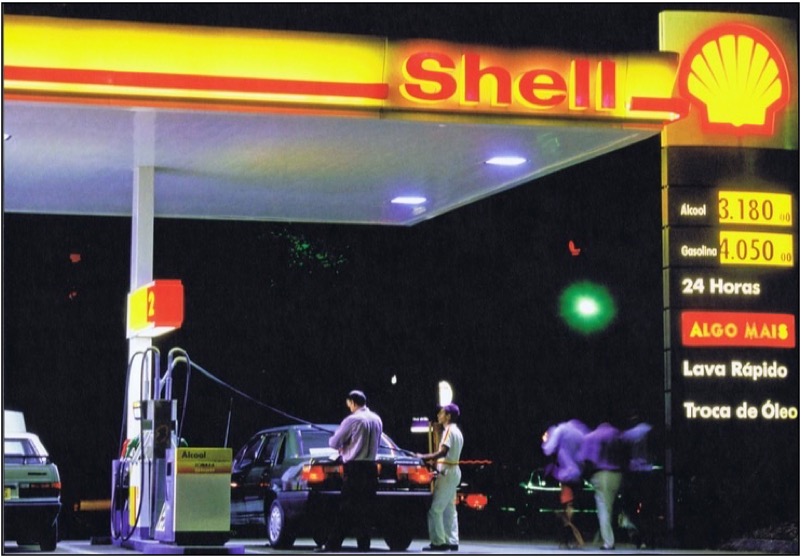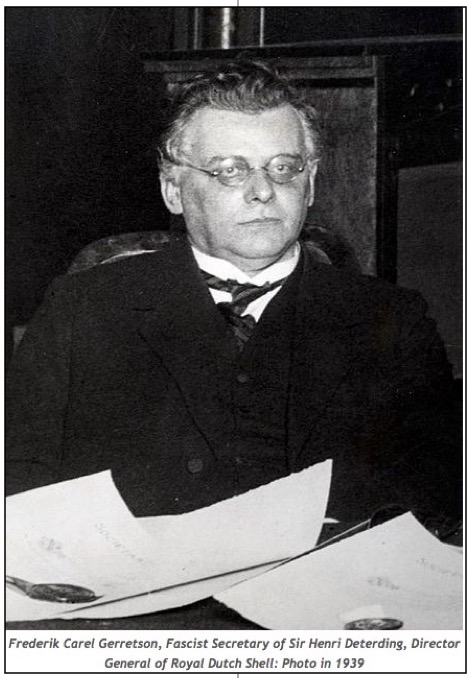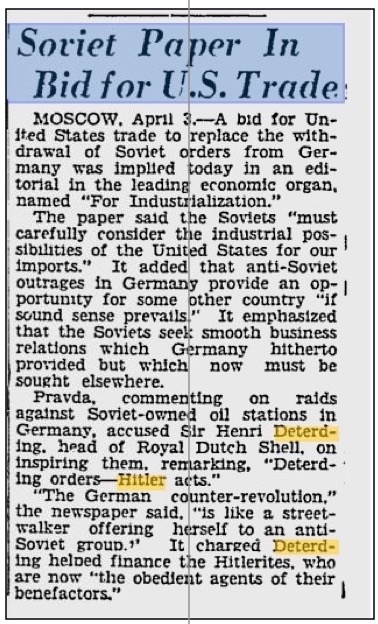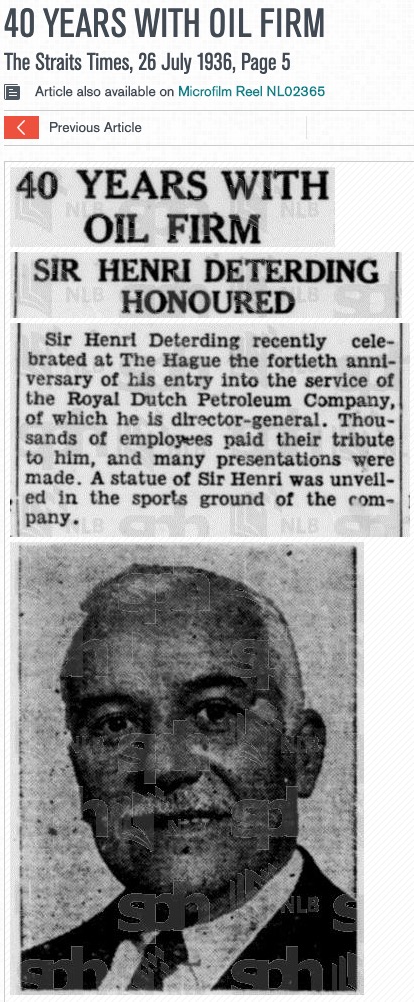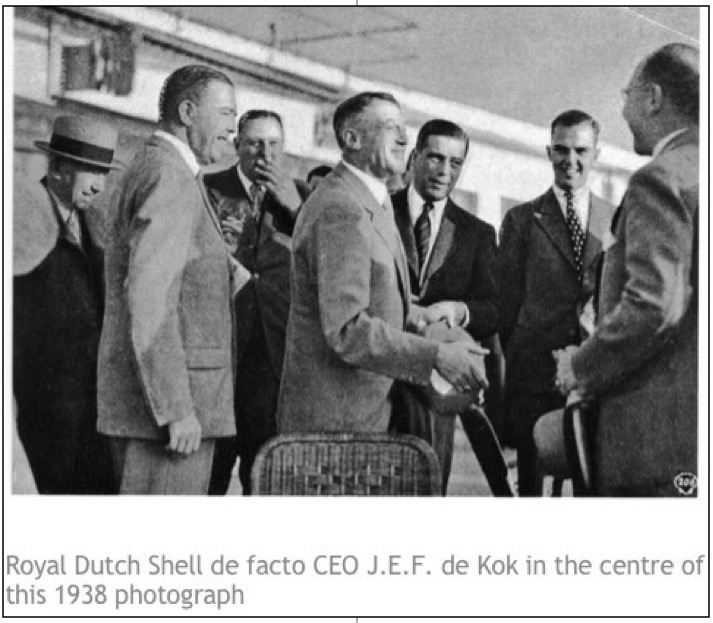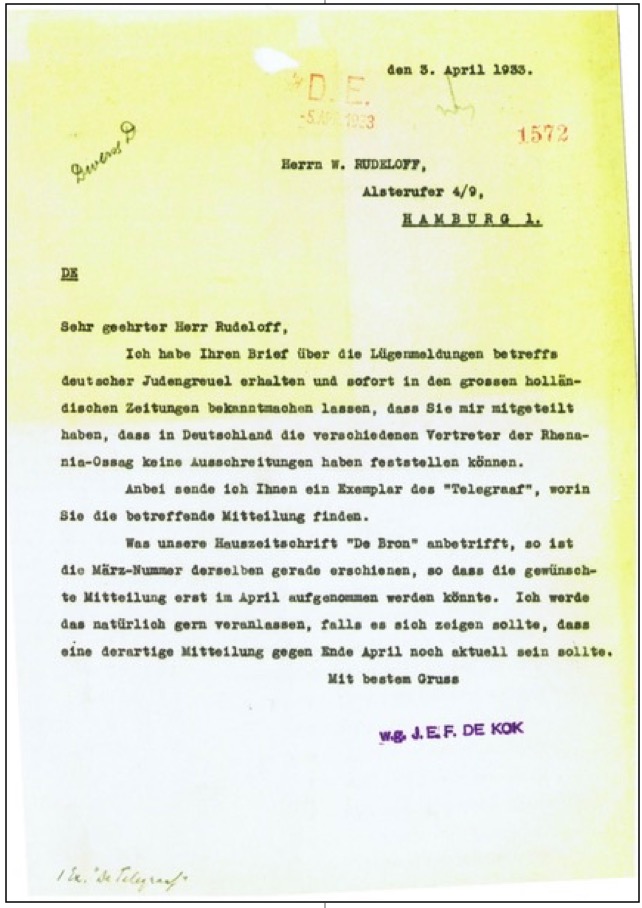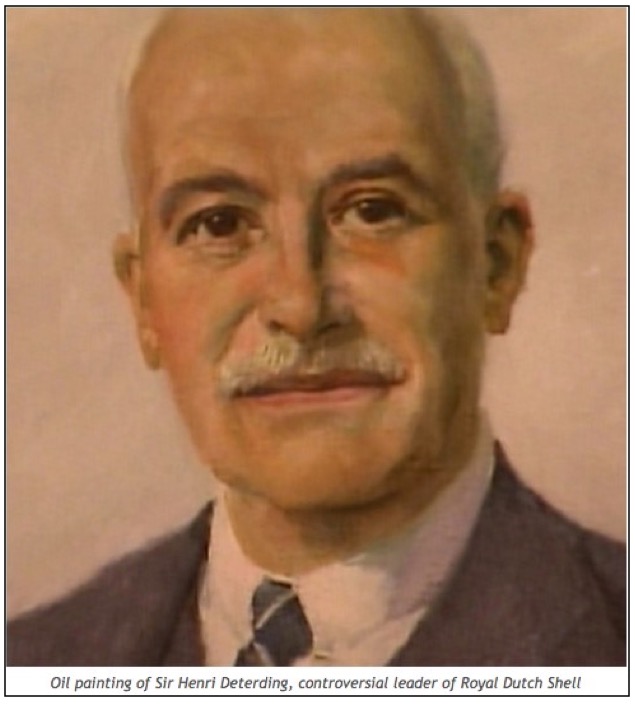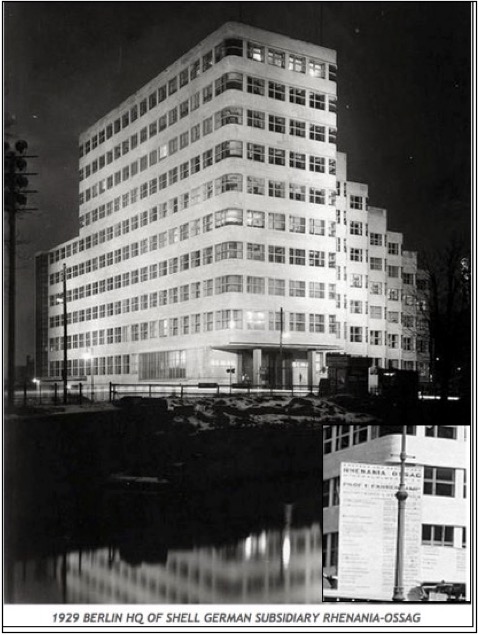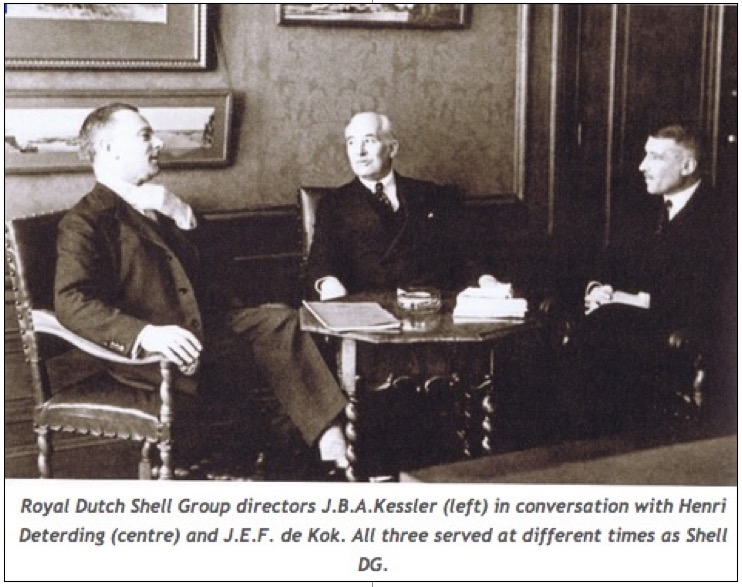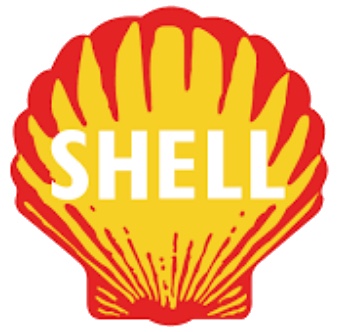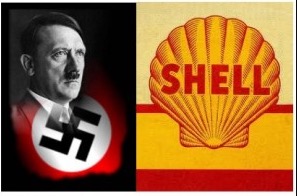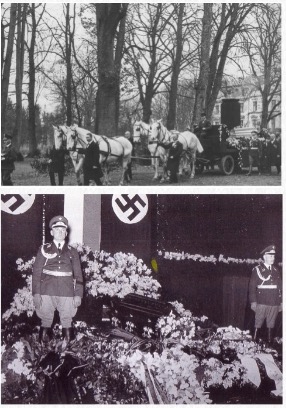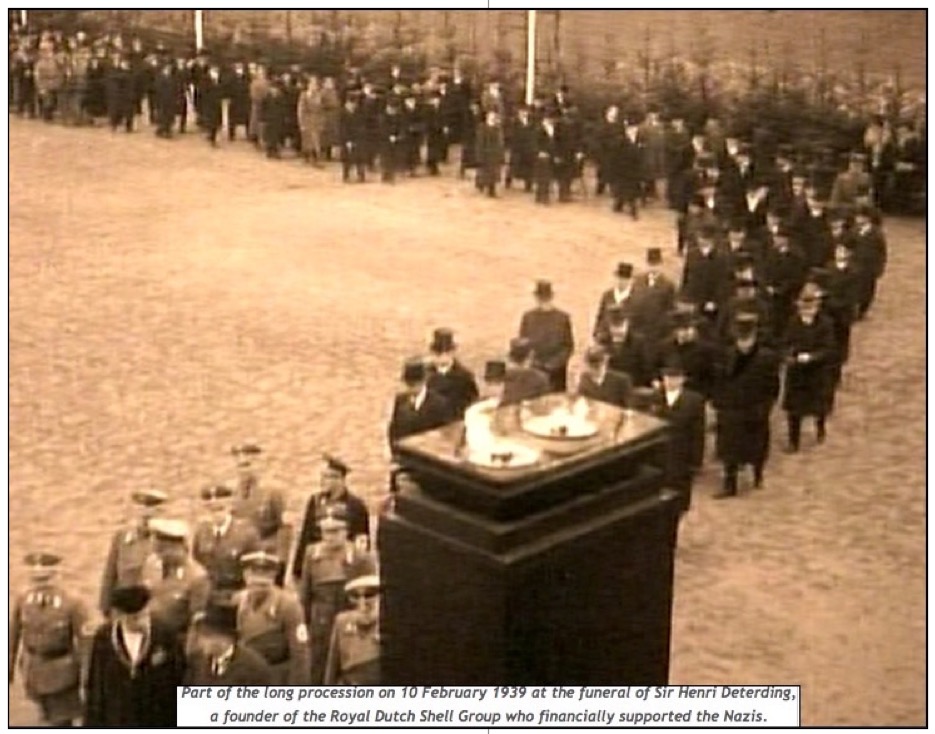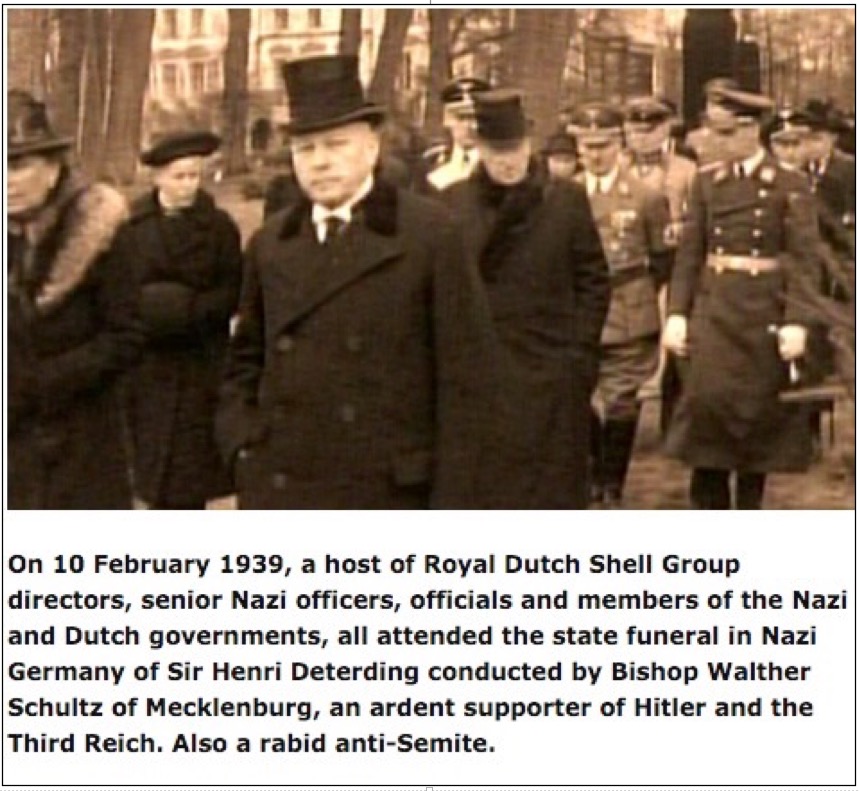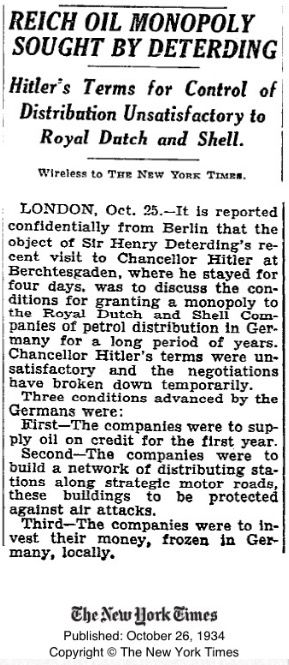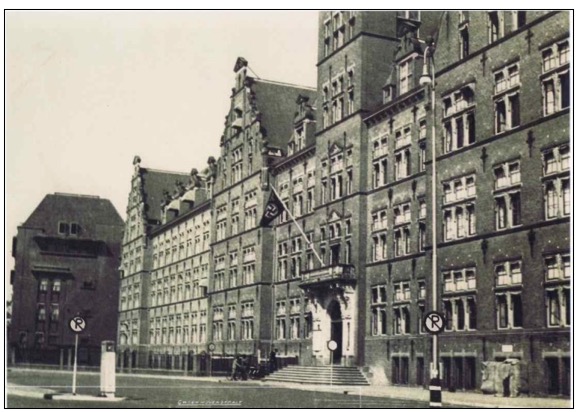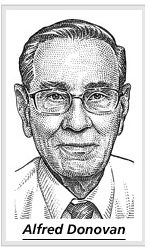The Shell logo is prominently displayed on tens of thousands of gasoline forecourts around the world. In the 1930‘s, there was a strong bond between its most celebrated and feared leader, Sir Henry Deterding, a Dutchmen with “extreme right-wing opinions,” and the Nazi party led by another dictator, Adolf Hitler. Deterding became an ardent Nazi and was surrounded by Nazi appeasers.
In the years just before WW2, a number of Dutch top executives at Royal Dutch Shell let their principles be corrupted by the Third Reich.
All became Nazi appeasers while engaging in activities that financially benefitted Nazi Germany and Shell.
They included at least five Dutch Group Managing Directors of Royal Dutch Shell.
 Namely, Sir Henri Deterding, J.E.F. de Kok (who became Deterding’s successor as Director General), Jean Baptiste August “Guus” Kessler Jr., (another subsequent Shell DG), James M de Booy and J.C. Baron van Eck.
Namely, Sir Henri Deterding, J.E.F. de Kok (who became Deterding’s successor as Director General), Jean Baptiste August “Guus” Kessler Jr., (another subsequent Shell DG), James M de Booy and J.C. Baron van Eck.
The same five individuals were also directors on the Bataafsche Petroleum Maatschappij board, “which concerned itself with the smallest details of Rhenania-Ossag’s business.” (See item 145 from page 534 of the Notes section from RDSH V1).
Bataafsche was another company within the Royal Dutch Shell Group. It controlled Rhenania-Ossag.
Hence these five Dutch Group directors knew what was going on at Rhenania-Ossag especially with regards to pressure that was applied by the Nazis. Deterding, De Kok and Kessler were all involved in anti-Semitic actions against Jewish directors and staff of Rhenania-Ossag. As a result of decisions involving Kessler, De Booy and Van Eck, the Group caved into Nazi investment demands regarding the Politz project.
De Kok was an ex army officer. De Booy, a lawyer, who became General Attorney at Royal Dutch, had previously spent 15 years in the Dutch navy. Baron van Eck had gone straight from school to joining Royal Dutch. At one time, he was Deterding’s secretary.
The additional background information comes from the Glyn Roberts biography of Deterding: “The Most Powerful Man in the World.”
The involvement of these five Dutch Group directors in decision-making at Rhenania-Ossag is also confirmed from evidence in RDSH V1 (searchable version) and associated notes (also searchable.) Just run searches on the relevant director names.
Any of these Group directors could have resigned rather than allowing the Nazi organized worker marches at Rhenania-Ossag and associated anti-Semitic actions against Jewish staff. Instead, they authorized transfers and dismissals on anti-Semitic grounds.
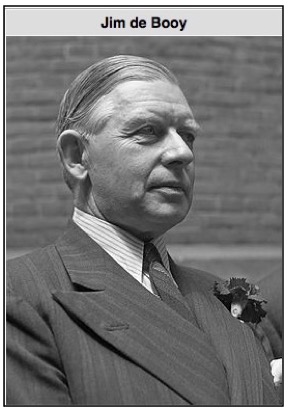 There were numerous Nazis at Rhenania-Ossag including all nine elected members of Rhenania-Ossag’s Hamburg works council. Some staff were said to be “fanatical” Nazis. See items 139 and 146 from page 534 of the Notes section from RDSH V1.
There were numerous Nazis at Rhenania-Ossag including all nine elected members of Rhenania-Ossag’s Hamburg works council. Some staff were said to be “fanatical” Nazis. See items 139 and 146 from page 534 of the Notes section from RDSH V1.
Members of the Dutch Nazi party worked for Royal Dutch in Holland and Nazi sympathizers worked for Bataafsche at Royal Dutch headquarters in The Hague. See page 32 RDSH V2.
The Group was infected with Nazis both in Germany and the Netherlands, right to the very top. It must have been an awkward situation bearing in mind that a British company owned 40% of the Group. After the war, Royal Dutch dismissed fifty staff in the Netherlands for collaboration with the Nazis. See page 82 RDSH V2.
Apparently reluctant to give up the position of a presence in both camps – Nazi Germany and the UK – Dutch Group directors continued the appeasement policy until WW2 started.
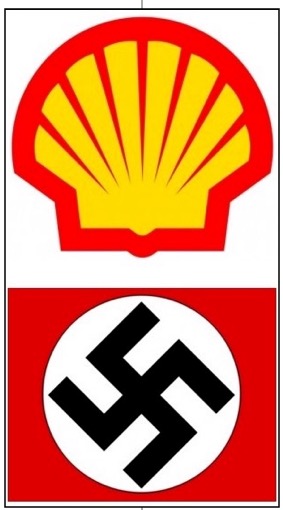 Dutch management then retreated to London and Curaçao. The Nazis appointed an administrator for Shell businesses in all Nazis occupied Countries, including Germany.
Dutch management then retreated to London and Curaçao. The Nazis appointed an administrator for Shell businesses in all Nazis occupied Countries, including Germany.
Similar difficulties had arisen with the advent of WW1, with Dutch directors insisting on maintaining close relations with Shell subsidiaries in Germany and Romania. The tensions arising from nationalism – choosing sides, or opting for neutrality – strained relations between London and The Hague “nearly to breaking point.” See pages 149, 150, 151, 152, 153 and 154 of RDSH V1.
The Dutch company secretary of Royal Dutch, N. van Wijk was appointed as a director of Royal Dutch by the Verwalter, Hauptmann Eichardt von Klass and proved to be another Nazi appeaser. See Chapter 9: “Shell collaborated in the Nazi annexation of Austria and occupation of Czechoslovakia.”
With so many Dutch Group directors taking the appeasement route, Shell’s involvement with the Nazis prior to WW2 cannot be blamed solely on the increasingly fascist leanings of a geriatric Shell DG, Sir Henri Deterding. His mental heath was questioned by at least one external detractor. See page 536 of RDSH V1 notes.
The Shell/Nazi relationship did not cease with Deterding’s voluntary retirement as DG, or with his death. Shell’s historians admit there is no evidence that he was forced to retire as DG. See page 486 of RDSH V1.
Deterding remained a director of multiple Shell companies until the day he died and retained controlling preference shares in the Group. The existence of the shares caused concern at the UK Foreign Office after his death: more about that later.
It is correct to say that Deterding played the most important role as a Dutch Group director in financially supporting the Third Reich.
Sir Henri was the chief architect and longest-serving leader (nearly four decades) of the Royal Dutch Shell Group.
An ardent Nazi, known to publicly give a Hitler salute to Shell employees, Deterding provided massive financial support to the Third Reich. As a businessman, he was said to have gifts for financial manipulations. See page 475 RDSH V1.
Sir Henri made significant donations, arguably saving the Nazi Party when it was in danger of financial collapse. All made possible from funds generated on Shell forecourts around the world.
From September 1935, the German Foreign Office seconded a member of its staff to Deterding as a personal assistant. See RDSH V1 page 478. His name was Horst Obermüller, a ‘well-known apologist of the Nazi regime and a promoter of Anglo-German friendship’. See item 177 from page 536 RDSH V1.
Deterding’s personal secretary from 1937 onwards had outspoken fascist sympathies. See page 483 RDSH V1. A previous secretary working for Deterding, Dr. F.C. (Frederik Carel) Gerretson, another Dutchman, was also a fascist. He acted as Shell’s historian and became a Professor of Constitutional History at the University of Utrecht. Sir Henry described himself as a fascist. See item 173 on page 535 of RDSH V1 notes.
In 1938, a member of Rhenania-Ossag management was involved in German High Command military planning. Oil was a vital element in the coming war.
Shell publicly boasted in Germany about its importance as a contributor to the German economy i.e. the Nazi economy. See RDSH VI Red text, top left of page 470. Claims were put into print and published in Shell’s name, under the Shell logo with the headline “SHELL und DEUTSCHLAND” (SHELL in GERMANY.” There was no mention of Sir Henri Deterding.
The Nazis benefited financially from Shell in a variety of ways, including from Shell’s close partnership in Germany with I.G. Farbenindustrie (IG Farben), the notorious German chemical giant. IG Farben later manufactured and supplied the Zyklon-B gas used during the Holocaust to exterminate millions of people in concentration camps.
Sir Henri was referred to in one American newspaper article as “czar of the Royal Dutch Shell.”
He was as closely associated with the Shell brand as Sir Richard Branson is with the Virgin brand today. He had the ambition and charisma of Sir Richard combined with the ruthlessness and steamroller determination of media baron Rupert Murdock. Sir Henri also had a sinister side, with involvement in plots and intrigue.
As was stated in The International Military Tribunal document published after the end of WW2: “Hitler could not make aggressive war by himself. He had to have the co-operation of statesman, military leaders, diplomats, and businessmen.”
Sir Henri was one of those businessmen. He was an incredibly successful capitalist of global renown but became a dedicated Nazi.
Sir Henri had a four-day meeting with Hitler as a guest at Hitler’s mountain top retreat. As far as I know, this dubious honor was not bestowed on any British Prime Minister.
Sir Henri was credited with using his influence to arrange the ill-fated meeting in Munich between Prime Minster Neville Chamberlain and Hitler.
See extract below from an article published Wednesday 26 October 1938 on page 3 of the Winnipeg Free Press under the headline: “Peace Planners named”:
Extract
Greenwich, Conn., Oct. 25. —Whyte Williams, former foreign news correspondent and editor of Greenwich Time, published yesterday a list of those whom he claimed were 12 leading members of a London group who purportedly arranged the peace of Munich between Prime Minister Neville Chamberlain and Fuehrer Adolf Hitler.
According to the article, Sir Henri Deterding, described as the head of the Royal Dutch Shell Oil Company was one of the 12 members of the group.
An article published on 3 April 1933 by the Border Cities Star, a Canadian daily newspaper, reported allegations made by Pravda, the official political propaganda publication of the Soviet Communist Party in Russia. They accused Sir Henri, the “head of Royal Dutch Shell,” of funding Hitler and described the Nazis as being obedient agents of their benefactors claiming: “Deterding orders-Hitler acts.”
Crucial information about these matters has emerged on the Internet as a result of newspapers digitalizing archives and making articles, some several decades old, available online.
Instead of information gathering dust in old-fashioned inaccessible archives, it is now likely to be instantly searchable and retrievable from any location, via the World Wide Web.
The welcome development allowed me to gather a considerable volume of previously effectively buried evidence, confirming the close association between Shell leadership and the Nazis.
Shell’s historians describe Deterding when he was in his late sixties, as downright cranky, sometimes engaging in rants and tirades: a man who felt surrounded by enemies. See pages 475/476 of RDSH V1
On page 481, they try to downplay his anti-Semitism, which included “venting strongly anti-Semitic remarks in his correspondence.”
In July 1936, Sir Henri reached his 40-year anniversary with the Royal Dutch Petroleum Company and a statue was unveiled in his honour.
In 1937, Deterding helped to finance a fascist splinter group in the Netherlands. See page 483 RDSH V1.
Deterding retired as DG in October 1936 but remained as a director of multiple Royal Dutch Shell Group companies. He held preference shares that gave him a measure of control over the Royal Dutch Shell Group.
The article directly below – “SHELL” TRANSPORT NEW DIRECTOR -reported that: “He retained chairmanships in numerous oil concerns, including the “Shell” companies in many countries.”
At the time of Deterding’s retirement as DG, the Group had the opportunity to make a clean break from the Nazi/fascist stigma attached to him and to Royal Dutch Shell. The same clean-break opportunity arose again with his death.
Significantly these opportunities were not taken up. Instead the Group appointed a new DG with much of the same toxic baggage, the long-time colleague of Deterding, Johan Egbert Frederik (Frits) de Kok (center), known as J.E.F. de Kok; another fascist sympathizer.
Deterding was still intervening in company affairs just forty days before his death on 4 February 1939. See Page 488 RDSH V1.
Shell, with J.E.F. de Kok at the helm, was under pressure from the Hitler regime and made a conscious decision by February 1937 to get even closer to the Nazis. A move they tried “at all costs” to hide. See page 473 of RDSH VI.
Like Deterding, De Kok seems to have enjoyed the oil baron lifestyle that went with the job. The first and only Koolhoven F.K.57 twin-engine, gull-winged monoplane was built in the Netherlands as his personal transport.
An article by Ton Biesemaat, a Dutch investigative journalist, said that senior people within the Group, including J.E.F. de Kok, were supporters of Hitler.
A further indication of De Kok’s leanings towards the Nazis can be deduced from Group internal correspondence in April 1933. De Kok wrote to Wilhelm Rudeloff, Shell’s top man in Germany, “saying that he had passed Rudloff’s comments about ‘false reports of German atrocities against Jews’ on to the main Dutch newspapers.”
Rudeloff, another Nazi appeaser and close friend of Deterding, was chairman of Rhenania-Ossag.
Printed below is an extract from page 469 of RDSH V1 concerning the outbreak of anti-Semitism in Germany and related demands made by the Nazi representatives on the Rhenania-Ossag works council for the immediate dismissal of Jewish directors.
Extract
The events convinced the Rhenania-Ossag managers that the company needed to be aligned with the New Order in Germany, and quickly. Though they had earlier attempted to downplay the seriousness of the violence against Jews, asking Group directors to have denials placed in English and Dutch news-papers, such actions had clearly unsettled them…
Note that the request was made to more than one Group director.
The De Kok letter below, is proof that he sided with the Nazi propaganda and promoted the same deception in the Dutch press. Namely that the alleged atrocities against Jews were false when, in fact, they were well founded.
Information on page 535 of RDSH V1 notes indicates that Van Eck and James De Booy participated in correspondence about the Politz project involving Rhenania-Ossag. The Group capitulated in response to Nazi demands. IG Farben was a partner in the project. Politz is located near Szczecin in Poland.
A related extract from the same page:
The far-reaching changes to the Rhenania-Ossag board could not have taken place without the full consent of Central Offices.
The relevant Dutch Group directors at Central Offices included Deterding, Fritz De Kok, “Guus” Kessler, J.C. Baron van Eck and James De Booy. All were involved in Rhenania-Ossag decision-making.
Kessler and Van Eck were directors of Rhenania-Ossag. Their fellow directors in the German subsidiary included Wilhelm Rudeloff (a close friend of Deterding) and Franz Koenigs a Nazi collaborator.
Kessler and Van Eck were among the Group directors who attended Deterding’s Nazi funeral in Germany along with senior representatives of the Nazi party. In 1947, Guss Kessler became DG of the Royal Dutch Shell Group.
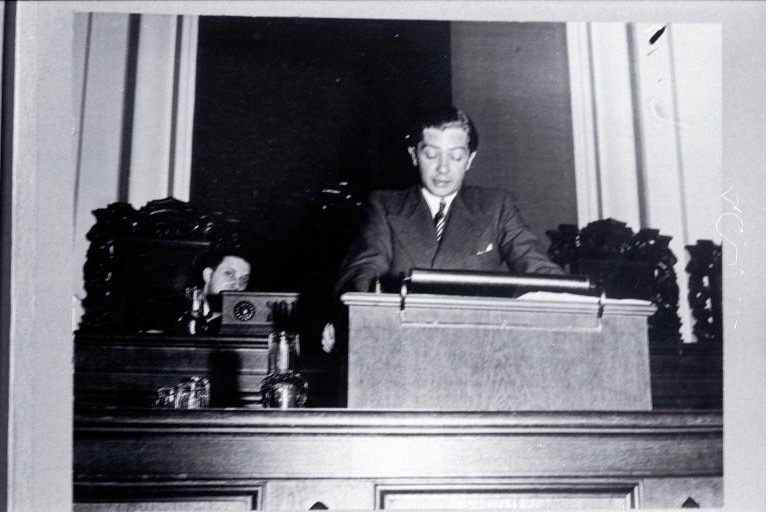
Dr. Walter Kruspig, Generaldirektor der Rhenania Ossag Mineraloelwerke A.G. Hamburg
Walter Kruspig, a Nazi party member since 1933, led Rhenania-Ossag management. His colleague, Dr. Erich Boeder, represented the oil industry in the Nazi 21 Army Group.
Another colleague Louis de Laporte joined the Kriegsmarine and commanded a minelayer vessel in the Ligurian Sea.
There is evidence that soon after the death of Sir Henri, Royal Dutch Shell, on the instruction of De Kok, financed fascist death squads collectively known as the Romanian Iron Guard “and helped to link it with Nazi interests in Berlin.” More information later.
Fearful the Nazis might gain control over the Royal Dutch Shell Group after Deterding’s death, British directors of Shell was determined that shares he left to his heirs would not be handed over to them; more about that later also.
The Group remained driven by unscrupulous greed after the demise of Deterding, just as it has been in more recent years, continuing to trade with other evil regimes.
 Some examples: South Africa (under the apartheid regime); Iran (evading sanctions); Libya (under Gaddafi) and Iraq (under Saddam Hussein).
Some examples: South Africa (under the apartheid regime); Iran (evading sanctions); Libya (under Gaddafi) and Iraq (under Saddam Hussein).
Shell is currently expanding its alliance with the murderous Putin regime despite Russia’s invasion of Georgia in 2008, its subsequent annexation of Crimea, stealth invasion of Eastern Ukraine and the related shooting down of a passenger plane, Malaysian airliner, MH-17, carrying 193 Dutch nationals. Shell employees were among those killed.
In October 2015, Putin moved forces into Syria under the pretext of attacking Islamic State but immediately begun bombing forces being supported by the Nato alliance.
What transpired in the 1930’s, during Shell’s relationship with the Nazis regime, obviously has no reflection on current Shell employees.
I would have hoped however that it might have deterred Shell executives from dealing with more recent rogue regimes, particularly as Shell now claims to have business principles.
Copyright Notice: All rights, including copyright and compilation in the content of shellnazihistory.com web pages authored by John Donovan are owned or controlled for these purposes by him. In accessing the said web pages, you agree that you may only download the content for your own personal non-commercial use. Except where expressly stated otherwise, you are not permitted to copy, broadcast, download, store (in any medium), transmit, show or play in public, adapt or change in any way the content of these web pages for any other purpose whatsoever without the prior written permission of John Donovan via the email address: john@shellnews.net
shellplc.website and its sister non-profit websites royaldutchshellplc.com, royaldutchshellgroup.com, shellenergy.website, shellnazihistory.com, royaldutchshell.website, johndonovan.website, shellnews.net and shell2004.com are owned by John Donovan. There is also a Wikipedia feature.